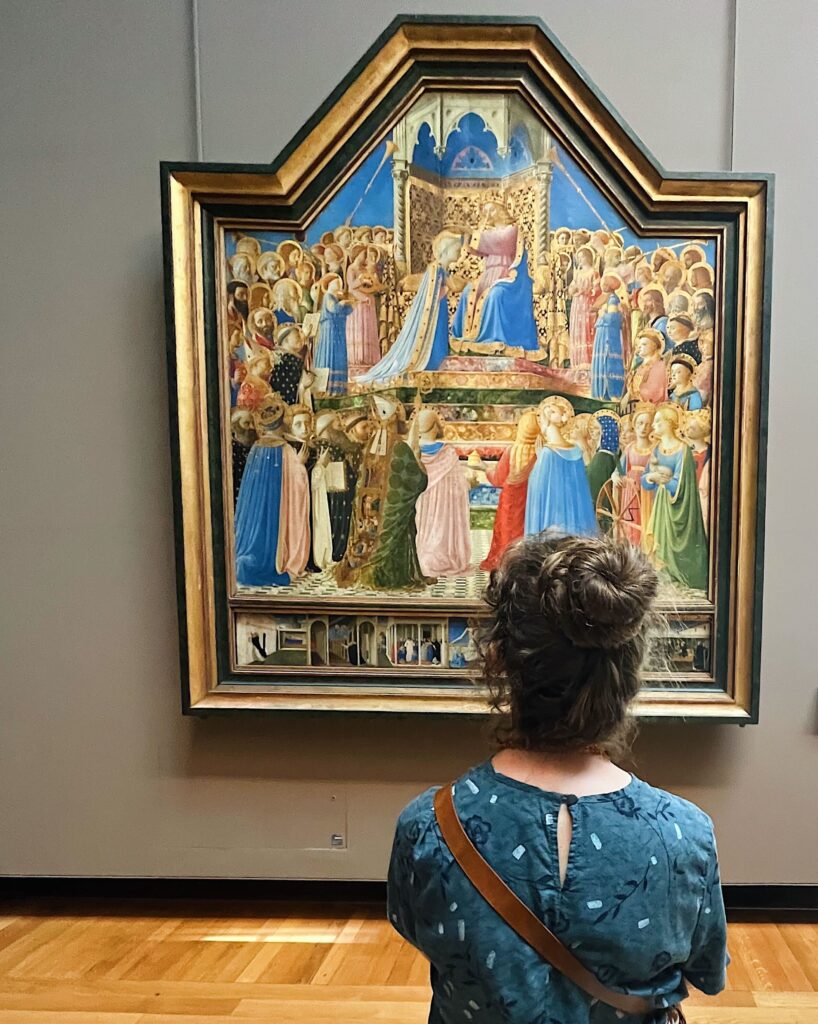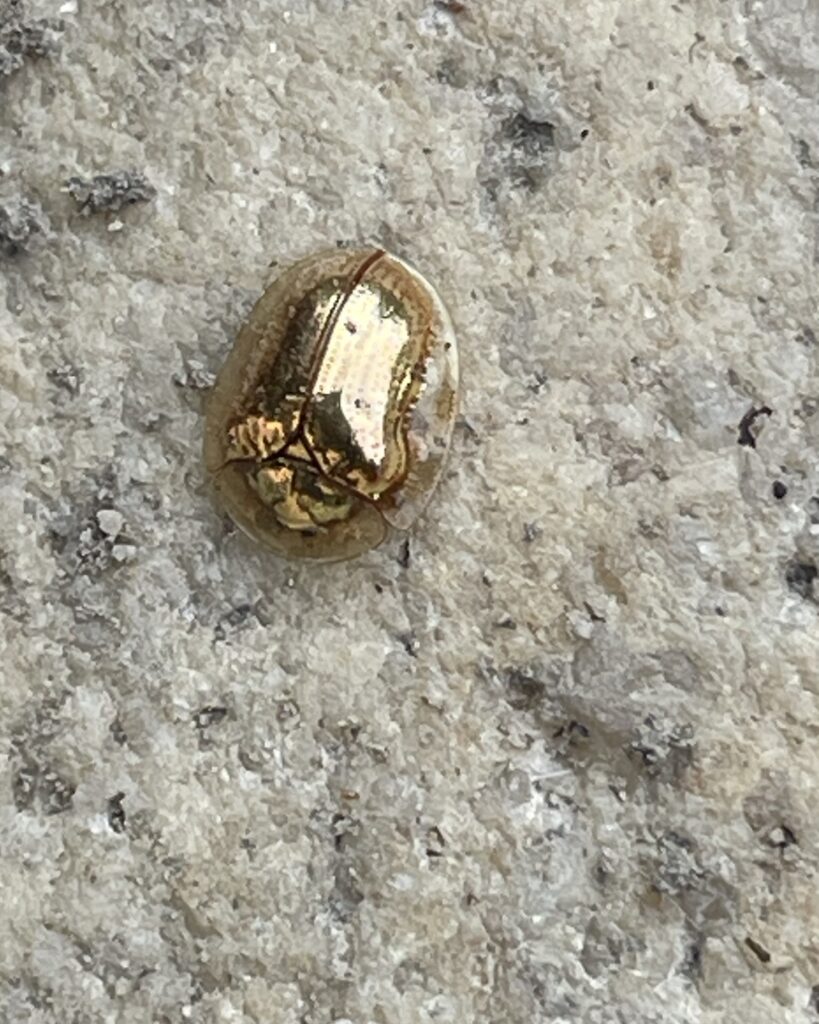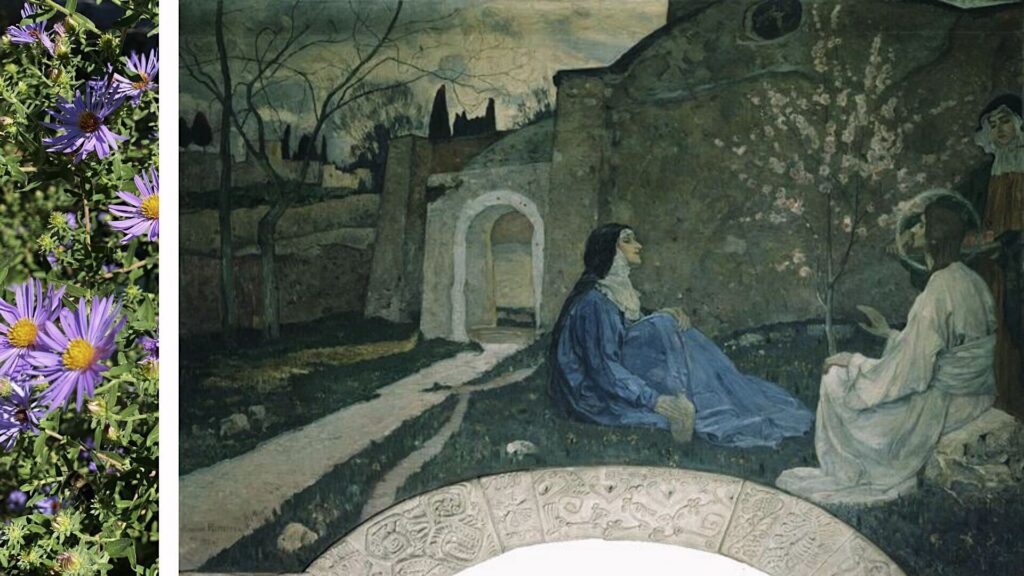The CMP Review — Week of September 9
September 9, 2024

“If mothers could learn to do for themselves what they do for their children when these are overdone, we should have happier households. Let the mother go out to play! If she would only have courage to let everything go when life becomes too tense, and just take a day, or half a day, out in the fields, or with a favourite book, or in a picture gallery looking long and well at just two or three pictures, or in bed, without the children, life would go on far more happily for both children and parents.” (Vol. 3 pp. 33–34)
@tessakeath
September 10, 2024

“The whole of Charlotte Mason’s educational philosophy is an affirmation of the great value of human personality. This underlies everything else and when she was stating her philosophy the first sentence was always: ‘Children are born persons.’ It is this idea that unites everything she held and taught.”
Joan Molyneux wrote these words in 1971. And then she added: “this reminder is never out-dated.”
In the sixth and final installment of her magisterial survey of the educational philosophy of Charlotte Mason, Miss Molyneux draws from such luminaries as C. S. Lewis and G. K. Chesterton to emphasize the importance of Charlotte Mason’s first principle. And she draws from an even brighter light as she reminds us “that Christ did not say ‘I have come to form characters’ but ‘I have come so that they may have life and have it to the full’.” Read or hear it here.
@artmiddlekauff
September 11, 2024
Do you still have books coming in for the school year?
Whether new books or vintage books that have hardly been opened, here’s how to open a book without breaking its spine.
@rbaburina
September 12, 2024
When I first heard about the Book of Centuries, I fell in love with the idea. I immediately made it a goal for everyone in my family to each keep one. There was just one problem, best stated by James Clear:
You do not rise to the level of your goals. You fall to the level of your systems.
In his book Atomic Habits, James Clear exposes the problem I ran into: “We think we need to change our results, but the results are not the problem. What we really need to change are the systems that cause those results.”
Because I never changed the system, I never got the results. So I felt like a failure.
I thought, as many people do, that when we came across an interesting date in a history lesson, we would get out our Books of Centuries and make entries. But we didn’t. Many PNEU programmes say that the Book of Centuries is a Sunday occupation. But I wonder how many families are thinking about schoolwork on Sunday. Are you?
Relying on inspiring moments and Sunday occupations resulted for us in books of empty pages. I took a hard look at my system. The answer for my family was to add an explicit entry to our timetable every week for work on our Books of Centuries. One entry a week doesn’t seem like much. It seems like a microscopic investment. An atomic investment.
“At first, these tiny routines seem insignificant,” explains James Clear, “but soon they build on each other and fuel bigger wins that multiply to a degree that far outweighs the cost of their initial investment.” And the gain for me turned out to be not just a busy notebook. It turned out to be a new relationship with history.
@artmiddlekauff
September 13, 2024

Aren’t these strawflowers just so gorgeous?
They stand about 150cm tall. And the burst of colour at the top is just incredible.
They have longevity. I took my first photo of these over two weeks ago and they are still blooming and beautiful!
No filter.
Well, only God’s filter.
@antonella.f.greco
September 14, 2024

When I first heard it suggested to keep a metallic gold in my nature journaling paintbox, I was unsure, but I can’t tell you how many times I’ve used it over the years.
I’ve run into the Golden Tortoise Beetle inside white magnolia and now on sweet potato leaves.
What metallic insects have you run into?
@rbaburina
September 15, 2024

The Rev. Francis Lewis was a friend of Charlotte Mason in life and in death. He was said to be “a devoted friend and worker … in everything where Miss Mason’s ideals were concerned,” and in 1923 he assisted at her burial service. I have been reading some of Lewis’s sermons lately, and I have been struck by the harmony of his voice with the voice of Charlotte Mason.
In a 1929 sermon, he spoke about one of my favorite chapters in the Bible: John 11. He reflected on the profound encounter of Martha and Mary with Jesus at the tomb of Lazarus, in light of their earlier encounter with Him in Luke 10. Lewis observes:
It was to Martha that Jesus said ‘I am the Resurrection and the Life’: the Martha who was cumbered with much serving: the Martha who was careful and troubled about many things, lest the careful housewife might fail in ministering to the comfort and honour of her Guest. Mary had been content to sit at His feet drinking in His words: to choose the good part that should not be taken from her. The silence of Jesus was enough for her. She could feel His unspoken sympathy. There was no need for her to speak either.
I believe Charlotte Mason saw in Mary of Bethany a pattern of faith and devotion. It is evident in her poem “The Good Part,” which you can read or listen to here. And it is evident that Miss Mason chose the good part too.
@artmiddlekauff